Amazing skills and abilities of the tribal peoples of the world
Categories: Nations
By Pictolic https://pictolic.com/article/amazing-skills-and-abilities-of-the-tribal-peoples-of-the-world.htmlThousands of years that tribal peoples have spent in close communication with nature have taught them to read its slightest signs with amazing accuracy: to feel climate changes, to navigate perfectly in the forest and at sea, to predict the displacement of ice blocks, to find food and water.
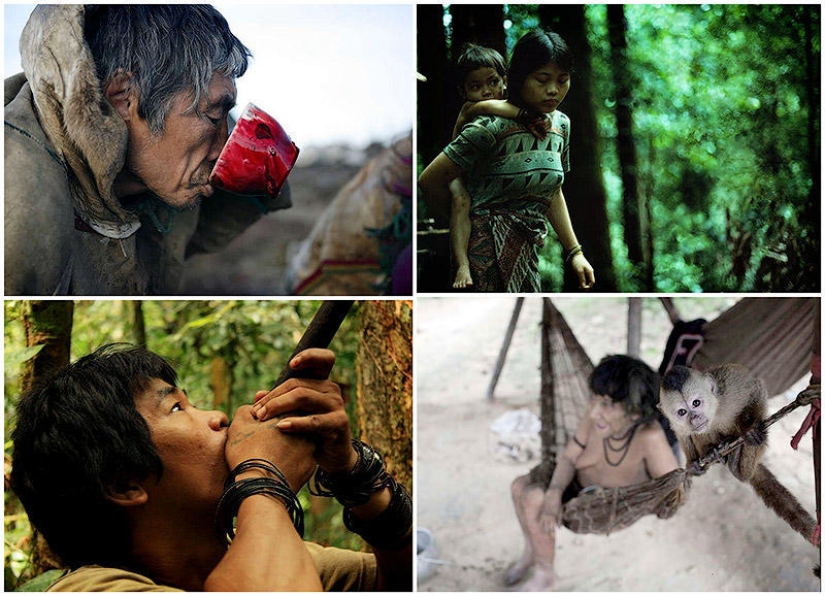
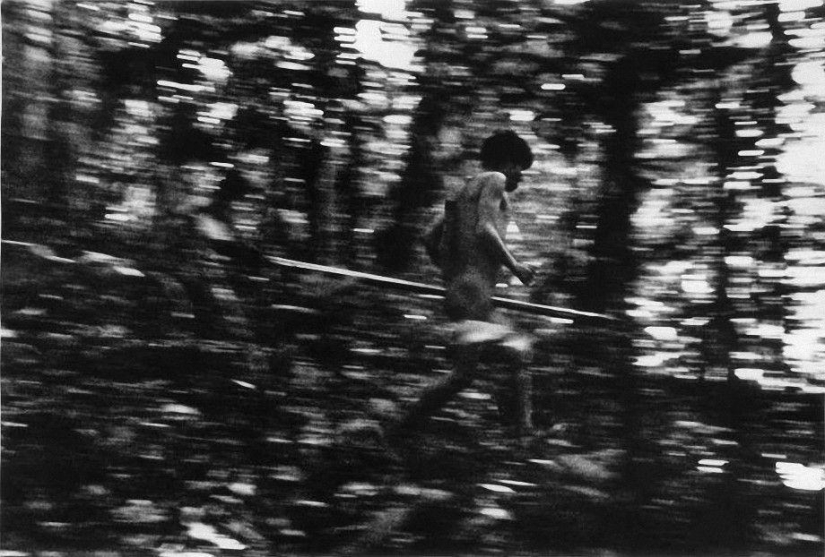
I am a part of these places," says Davi Yanomami. I was born in the forest and I know it well.
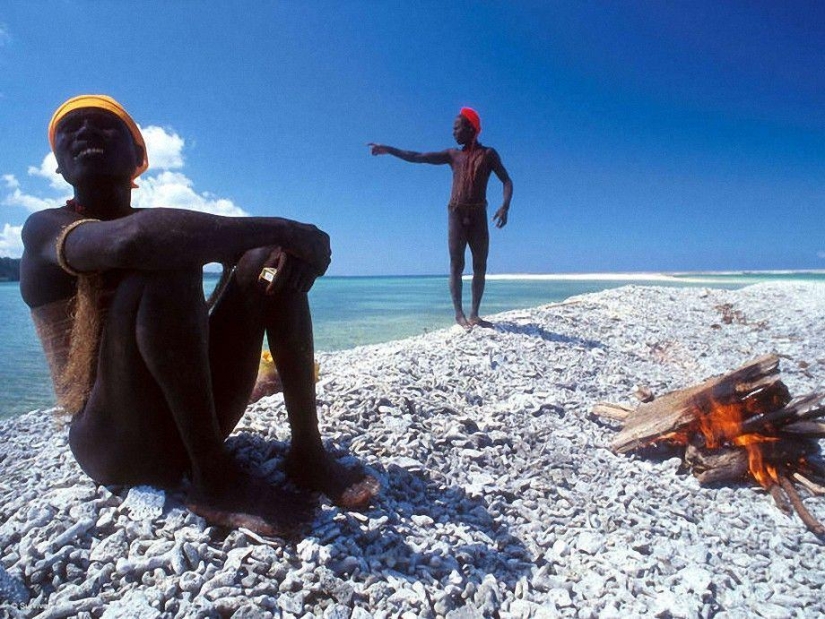
During a drought, the Jarawa people use rattan palm juice as a source of moisture. When they need to collect wild honey, they spray the hive with the juice of this plant and the bees fly away.

The "sea gypsies" from the Moken people who live on the shore of the Andaman Sea have developed an amazing ability to see perfectly underwater, thanks to which they can find food on the seabed. The vision of these people is sharper than that of Europeans by about 50 percent.

The history of the Moken people is transmitted orally from one generation to another. These legends are full of deep knowledge about the sea, winds and lunar cycles.
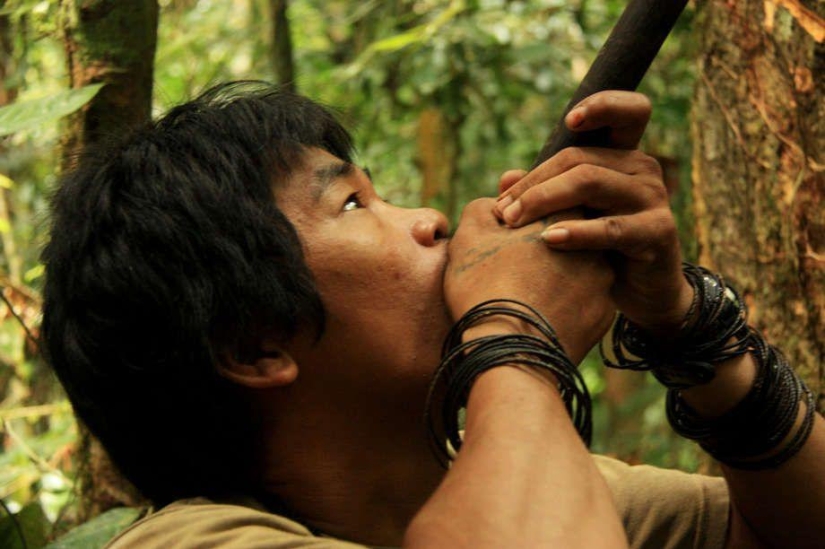
The Penan tribe lives in the tropical forests of Borneo. These people hunt wild boars using blowpipes made of solid wood, from which they blow darts soaked in the poisonous juice of one of the local trees.
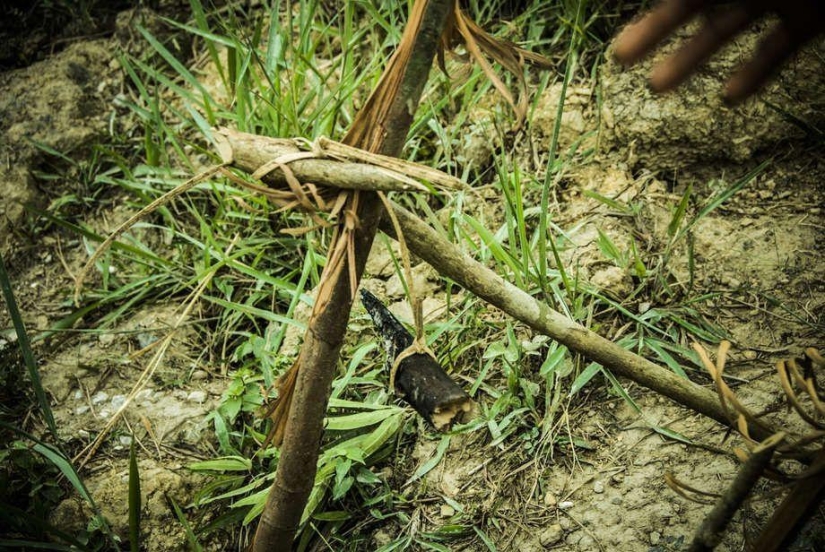
Until the 1960s, the Penan people led a nomadic life, communicating in the forest during the journey with a complex system of signals, which included symbols made of sticks and leaves, called oru. With the help of the oru, it was possible to inform, for example, that the person who passed here was sick or hungry.
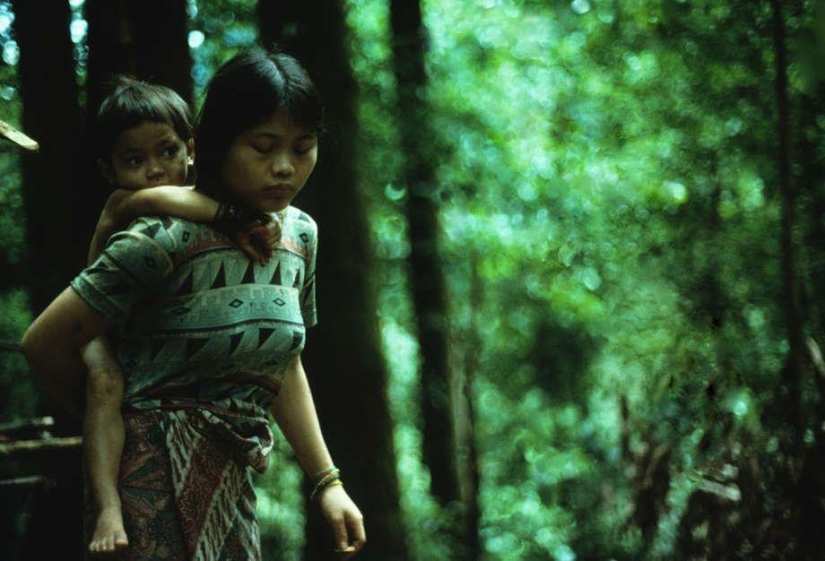
In the 1970s, white people came to the lands that the Penan people had occupied for many generations - they cut down the forest, planted oil palm plantations, laid a gas pipeline and built hydroelectric dams.
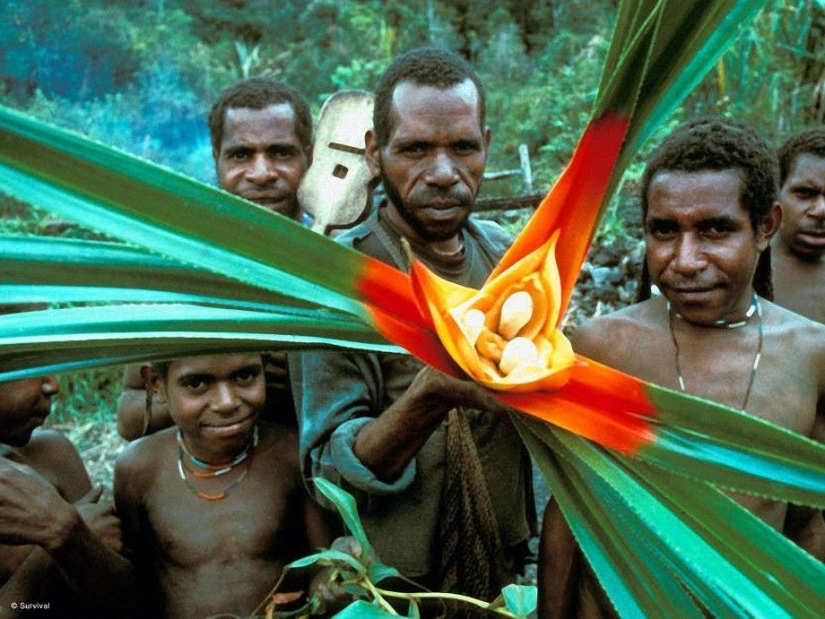
Many people living in tribes have encyclopedic knowledge about animals, various fruits and herbs. Yanomami, for example, is used in everyday life by about 500 species of plants. And representatives of the Yali people from West Papua distinguish at least 49 varieties of sweet potatoes and 13 varieties of bananas.
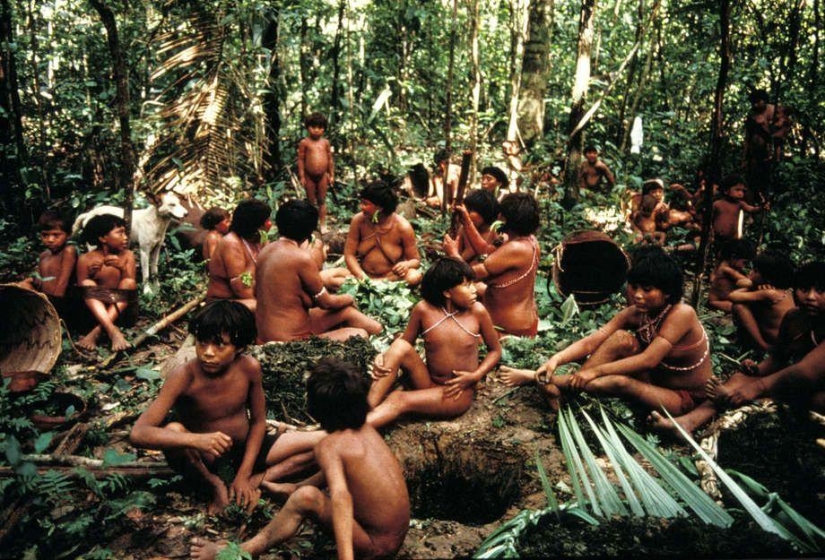
Over time, the tribe developed a complex and holistic system of healing. Copaya bark, for example, is used to treat eye infections, wine from the juice of acacia Greggi is used for diarrhea, and the aroma of crushed leaves is inhaled for colds and nausea.
Many medicines of modern medicine have been developed thanks to the observations and experience of these people and have saved millions of lives. For example, curara poison, which Yanomami hunters used to paralyze their prey, is used in Western medicine as a muscle relaxant.
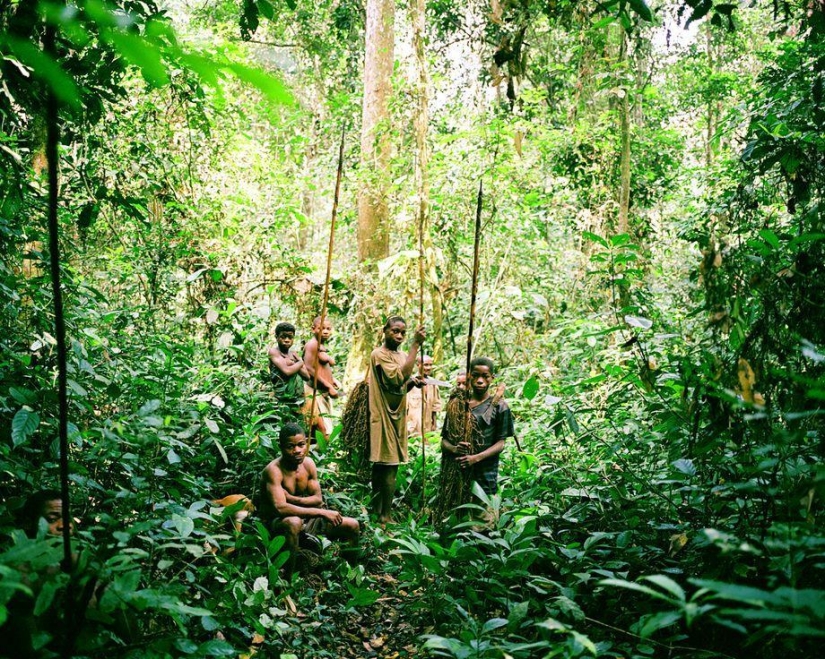
Most people living in tribes are surprisingly sensitive to animal behavior. Pygmies imitate the sounds of an antelope in trouble so accurately that they can easily lure an animal out of a shelter. And Siberian hunters can perfectly imitate the cry of a reindeer.
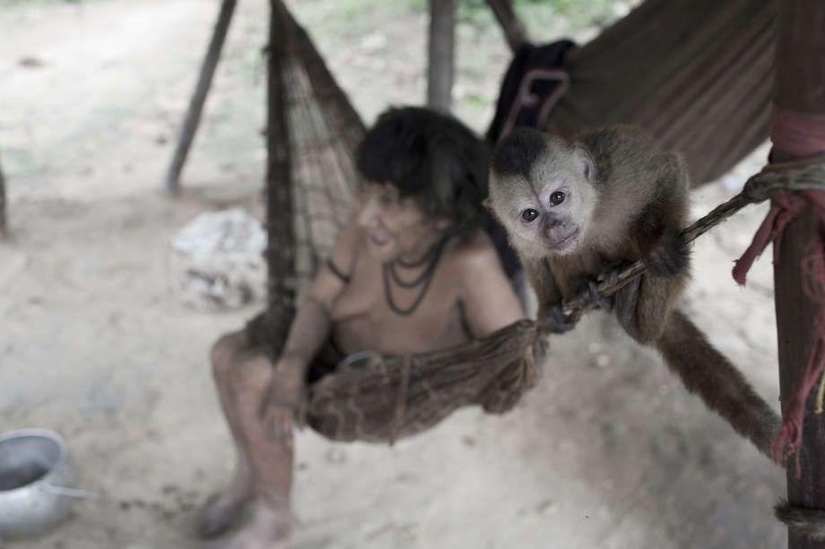
Ava women take care of orphaned baby monkeys, including howlers and capuchins; they often feed the animals with their milk.
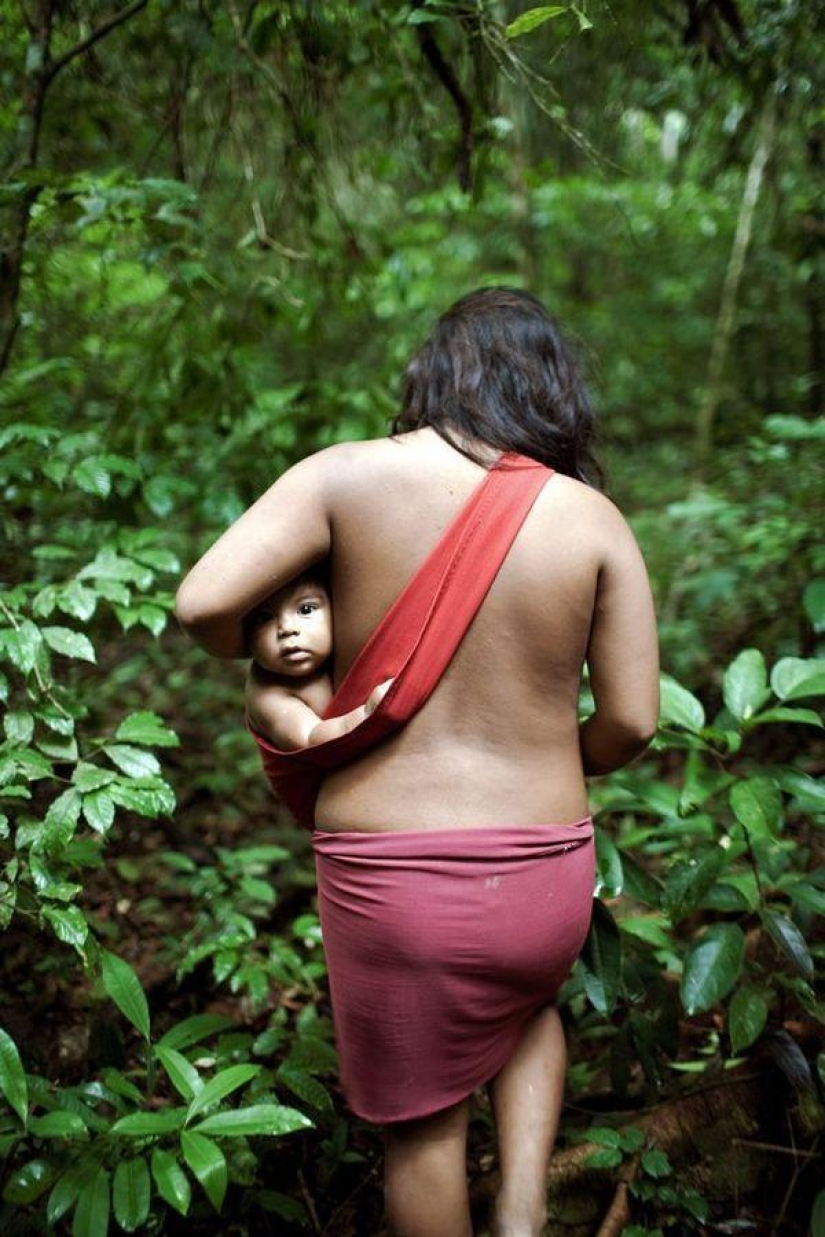
Ava women collect Brazilian mahogany resin, with which they light their homes in the evenings.
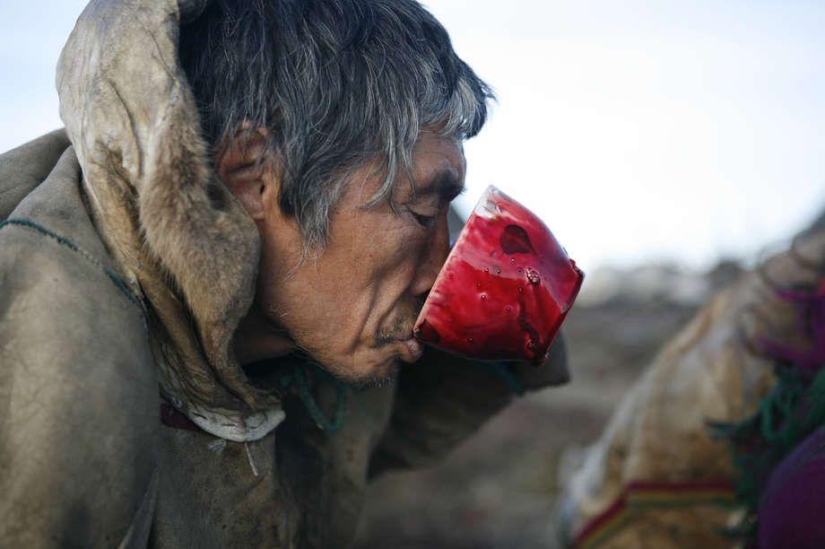
Reindeer meat is the most important part of the Nenets diet. It is eaten raw, ice cream or boiled, together with the blood of a freshly slaughtered animal containing many valuable vitamins. The fat content of deer milk is 22 percent — six times more than cow's milk.
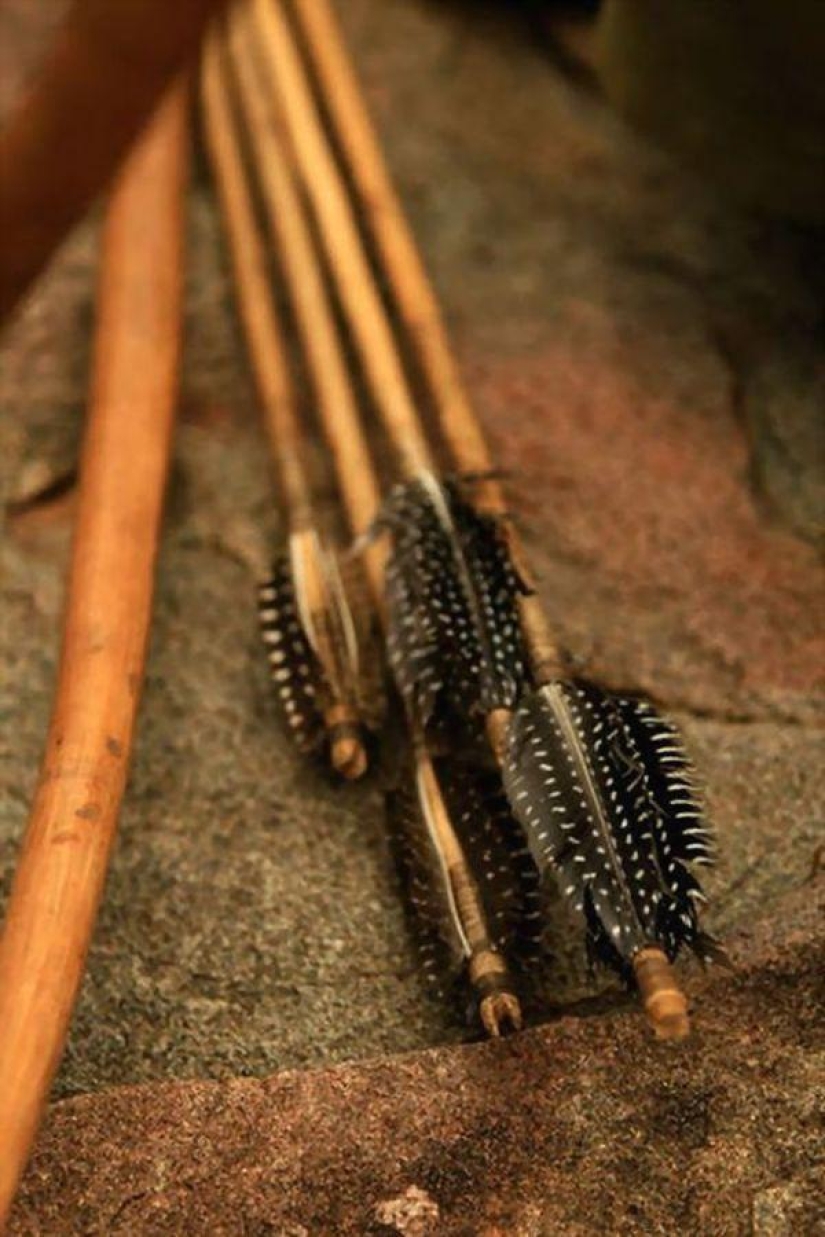
The bowstring for their bows representatives of the Hadza tribe from Tanzania is made from animal bundles. Arrows are carefully ground out of kongoroko wood and then feathered with guinea fowl feathers. The tip is smeared with adenium poison.
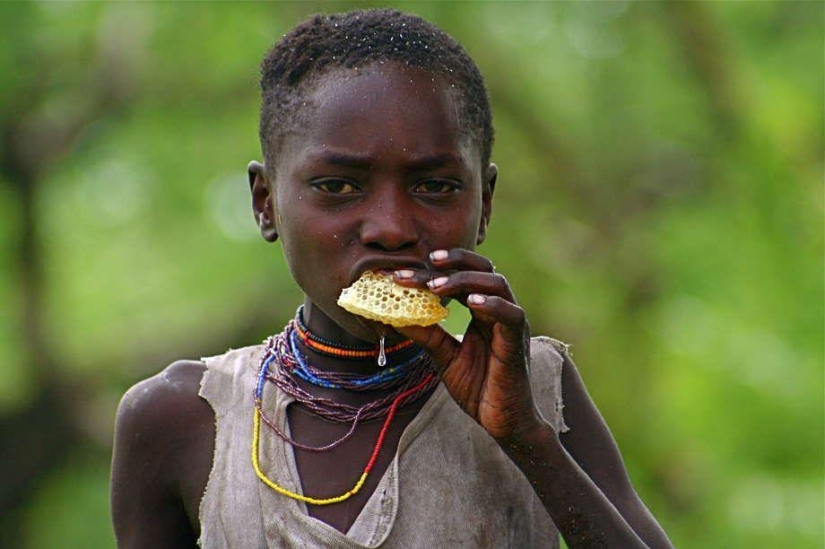
The Hadza people have a particularly close relationship with honeybee birds, which lead them to hives of wild bees. People whistle, birds answer them, flying from tree to tree closer to honey. So, calling to each other, they reach the hive, which usually hangs from a baobab branch.
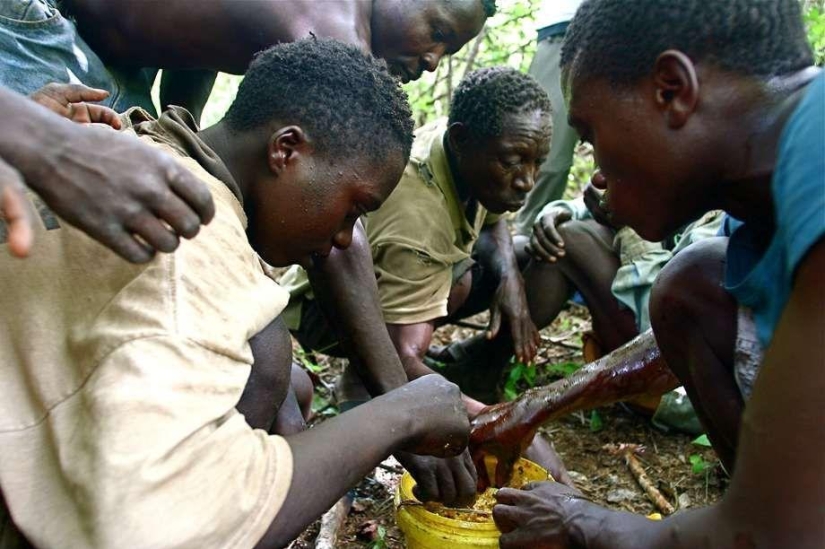
Then the Hadza climb a tree with a bunch of smoldering grass, smoke out the bees and collect honey. The bird remains the remains of the feast.
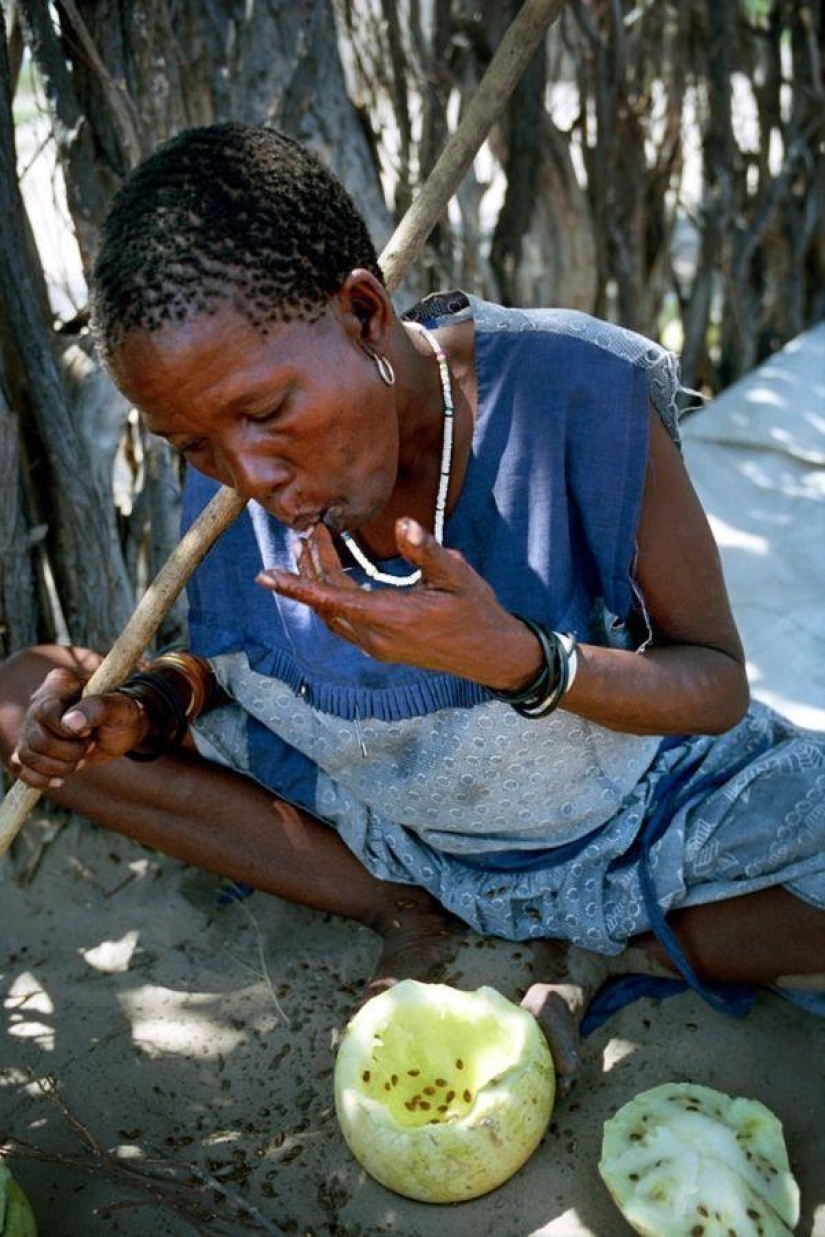
Bushman woman from Botswana tries melon pulp for juiciness.
Keywords: Tribes
Post News ArticleRecent articles

It's high time to admit that this whole hipster idea has gone too far. The concept has become so popular that even restaurants have ...

There is a perception that people only use 10% of their brain potential. But the heroes of our review, apparently, found a way to ...
Related articles

Thousands of years tribal peoples held in close contact with nature, taught them surprisingly accurate to read the tiny signs: to ...

In the past year, the North Sentinelese island (India), the natives shot from a bow to bring him American missionary John Chow. He ...

British photographer Jimmy Nelson has dedicated his life to travel and familiarity with indigenous tribes, which have not yet ...

New Year's is a time to surprise and delight loved ones not only with gifts but also with a unique presentation of the holiday ...